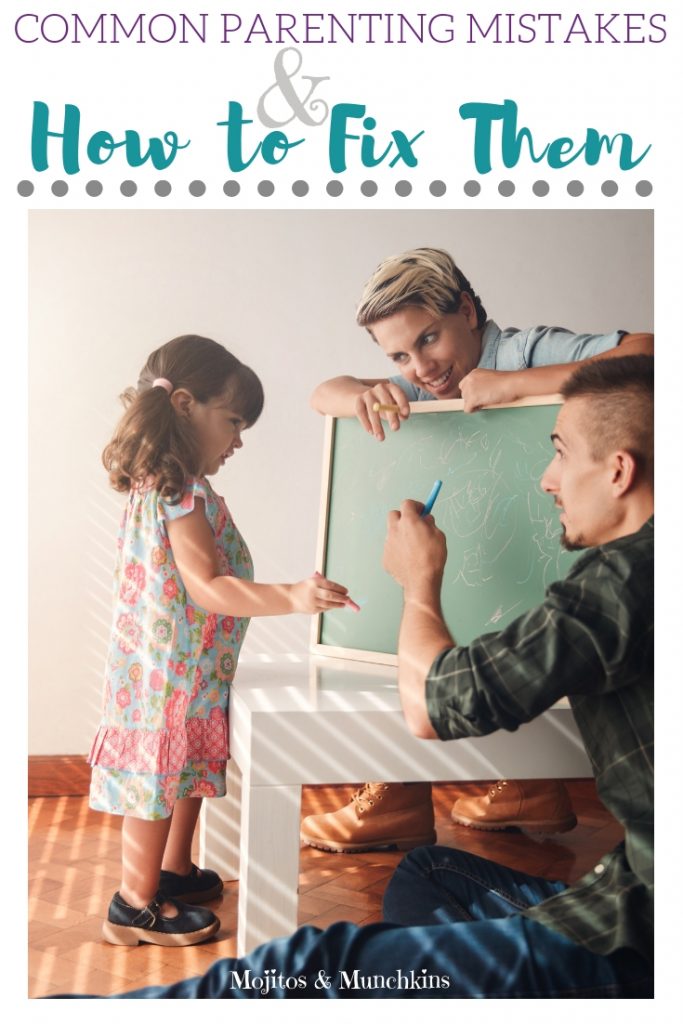Absolutely nobody is perfect. When you have a baby, you don’t magically turn into a perfect parent and know everything there is to know about raising a family. The fact is, most people are winging it, day in, day out. Absolutely nobody has all of the knowledge. And that’s ok! However, there are some pretty bad parenting mistakes you might be making. It’s better to be aware of these mistakes now before they go any further, or before you actually do make them if you haven’t already. Let’s take a look and see what you may need to be aware of:

Doing Everything For Them
Offering to do everything for your kids when it doesn’t immediately come naturally to them sends the message that they are too young, messy, forgetful, clumsy, or unintelligent to do it themselves. Allowing them to do things themselves, however, gives them a sense of accomplishment and self esteem. It’s a good idea not to be a helicopter parent and instead let kids try things on their own. Even let them make mistakes. If they are afraid of failure, they will never try anything new!
Invalidating Your Children’s Emotions
There are numerous ways you might be invalidating your children’s emotions without even realizing it. When you tell them to stop crying or to settle down, you are telling them that they aren’t allowed to voice their emotions around a certain situation – even though young children do this because it’s what their brain development allows. They simply can’t be ‘grown up’ about it
Children are emotional. Period. You can instead empathize with your child using words such as I see that you’re very upset because it’s time for bed. Telling them there is nothing to worry about in certain situations is just as bad. It tells them that this feeling is not valid and that they should just ignore it, rather than working through it. Adults should know that it’s no good to simply try and squash an emotion once it arrives. Instead, acknowledge their fear so that you can talk it through and find the root cause of the problem. You can then brainstorm solutions and try to get them to talk about it.
Having honest conversations with your kids is sometimes even more important, especially when it comes to things like loss of family members and dealing with places like Emroch & Kilduff – as a result. Kids can sense when something is wrong, so it can be pointless trying to hide it. Make sure you explain in a way that is age appropriate.
Assuming Your Kids Are Always Thinking Clearly
Kids are impulsive and aren’t always good at looking ahead or predicting outcomes. Don’t simply ask ‘why’ they did something as that assumes they are always thinking clearly. Instead, help them to think through the situation so you can both figure out where things went off track, step by step. This is a much healthier way of doing things and will instill critical thinking skills in them for future situations.






